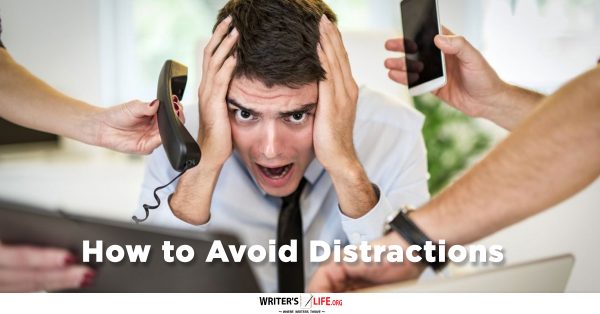- How To Tackle Jealousy In Creative Writing
- Common Submission Mistakes
- How To Stop Your Blog Becoming Boring
- The One Thing Every Successful Writer Has In Common
- How To Make Yourself Aware Of Publishing Scams
- Why Almost ALL Writers Make These Grammar Mistakes At Some Point
- 5 Tips For Authors On How To Deal With Rejection
- Top Mistakes to Avoid When Writing a Novel
- How to Avoid Common New Writer Mistakes
- 10 Mistakes New Fiction Writers Make
How To Avoid Distractions

Distractions are everywhere. From noisy children to chores to social media, there is a never-ending list of things trying to get in the way of productivity. If you find yourself becoming so distracted that it gets in the way of meaningful work, take a look at these tips to help you out.
Have a snack
You don’t need to have a gourmet meal before you start working, but you should have a relatively full stomach. Being hungry is a huge distraction and can easily get in the way of any progress.
Try to time your writing spurts around meal times. If that’s not possible, make sure you have a snack first. Fruit or complex carbohydrates will keep you satisfied and give you the energy to focus. Sugary sweets or drinks might be too stimulating and can actually further distract you. And, if you plan on a long writing session, make sure you have a snack ready at hand. A bowl of nuts or a protein shake that is easily accessible as you’re typing along will allow you to write for a longer period of time.
Make a list of things you want to look up later
If the piece of writing you’re working on includes a lot of details, it can be easy to get distracted on further research. Instead of heading to Wikipedia the moment you need more information, keep a notepad next to you and start a list. It’s ok if your writing has blanks you need to fill in; what’s important is to keep the flow going.
Play some classical music
Sometimes getting rid of too many distractions can lead to a distraction in itself. Try playing some classical music. Music with lyrics is a huge distraction; when you’re writing, the last thing you want is someone else’s words interrupting your own. But classical music can provide a rhythm to your writing, aiding in your fluidity.
Time yourself
It’s ok if you often need to take breaks. Just be realistic about it. If you find that you take breaks every few minutes, start timing yourself. Set the timer for 15 minutes and know that when the timer goes off you get to stop, guilt free. Over time you can try adding more time on to your writing sessions.
As well, time your breaks. Make sure that you’re spending more time being productive than being distracted. A timing method allows you to concentrate on what you’re working on and takes away the guilt of needing frequent breaks.






























